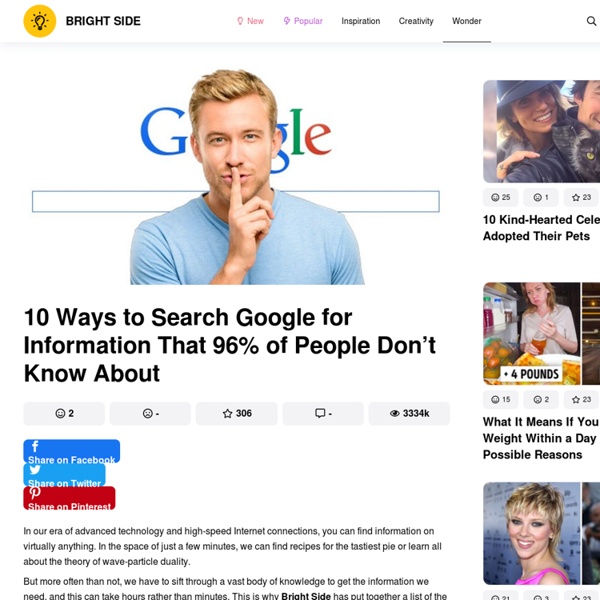Getting Out of the Filter Bubble: Finding The Real You Online
I recently had a great (and timely) conversation with one of the counselors from International School Manila at the EARCOS Teacher’s Conference in Kota Kinnabalu, Malaysia (check out all the resources from all of my sessions here). She said: “I wish there was a way to help students recognize what their online profile looks like to other people. They often think what they’re posting is great, but it can be hard for them to view it through someone else’s eyes.” The conversation was great because it’s such an important topic to highlight with students. And, it was timely, because this week, our Eduro Learning Facebook live topic is advanced search techniques, so it really got me thinking about how important it is for students to experience and reflect on the actually process and results of searching. And even if we do have those conversations, there’s another very specific challenge to having a true view of our digital footprint.
UW class on how to spot fake data goes viral within hours
Two University of Washington professors are taking aim at BS in a provocatively named new course they hope to teach this spring. The professors would like to push the course materials online — teaching it as a MOOC, for example, a freely available course taught over the web. When it came to picking a title for the course they will teach this spring, University of Washington professors Carl Bergstrom and Jevin West decided to abandon academic stodginess and get edgy.
Digital content curation: For students! – Kay Oddone – Medium
Originally published on LinkingLearning I’ve been a fan of digital content curation for a long time. I’ve blogged about it on many occasions; first waxing lyrical about Diigo way back in 2011, then celebrating the new year in 2013 by suggesting resolutions to use curation to manage content overload and then reflecting on curation as an art form more recently. So what could I have left to write about, six years after my original post, and is digital content curation even relevant anymore? Recently it has come to my attention that everyone is looking for strategies to organise the huge amount of digital information we engage with every day, and I have started thinking that perhaps we don’t find content curation easy because we were never taught how to do it. My previous posts were always focused upon the value of curation for teachers and teacher librarians.
Trustworthy advice for a post-truth world - University of Alberta
How do you tell fact from fiction in an online world where fake news often seems like the real thing? When the Oxford English Dictionary picked “post-truth” as word of the year for 2016, it seemed to signal a shift in the way we perceive the world—the triumph of emotional response over rational thought. But our susceptibility to “fake news” is not a new problem. It goes back at least as far as the 1890s, when the term “yellow journalism” emerged in the New York newspaper wars to denote a brand of sensational reporting more interested in circulation than accuracy.
The Future of Free Speech, Trolls, Anonymity and Fake News Online
Many experts fear uncivil and manipulative behaviors on the internet will persist – and may get worse. This will lead to a splintering of social media into AI-patrolled and regulated ‘safe spaces’ separated from free-for-all zones. Some worry this will hurt the open exchange of ideas and compromise privacy The internet supports a global ecosystem of social interaction. Modern life revolves around the network, with its status updates, news feeds, comment chains, political advocacy, omnipresent reviews, rankings and ratings. For its first few decades, this connected world was idealized as an unfettered civic forum: a space where disparate views, ideas and conversations could constructively converge.
10 Ways to Spot a Fake News Article - EasyBib Blog
For many of us, 2016 is going down as a year to forget. Election upsets, Zika, the Syrian crisis, and unfortunately tons of fake news about all of the above and everything in between. Denzel Washington was recently quoted as saying, “If you don’t read the newspaper, you’re uninformed.
15 mistakes you should avoid in hair care
Beauty is made up of many things. But it’s safe to say that healthy and well-kept hair plays one of the key roles in creating a unique and attractive image. Today, Bright Side offers you a guide to the most common mistakes women make in their quest to have the hair of their dreams.
Question Everything – Kay Oddone – Medium
Our existence is dominated by questions. From the youngest baby, who wonders whether their chubby little toes will fit into their mouths, to the leading Nobel Prize physicist who ponders the stuff of the universe, questions fill our waking moments. Asking questions underpins how we learn. Have you ever spent time with a 3 year old?



